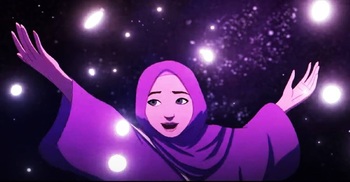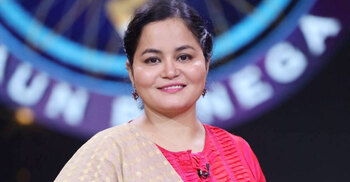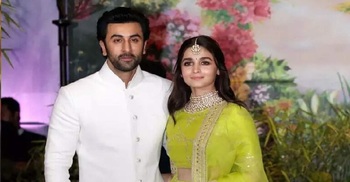‘I was never meek’: Priyanka Chopra Jonas on Miss World, Modi and misogyny

She has conquered Bollywood, broken Hollywood, married a pop superstar, gained millions of followers – and now she is publishing a memoir of life in the spotlight by Simon Hattenstone.
Priyanka Chopra Jonas looks flawless – perfect skin, gorgeous face, utterly serene and wearing the most immaculately steamed silk shirt I’ve ever seen. In the background, a fire roars invitingly; to her side, out of sight of Zoom, her mother, Madhu, lies on the floor exercising. This is life as an idyll.
The former Miss World and Bollywood turned Hollywood star is talking about her memoir, Unfinished. And she is quick to point out that there is so much unfinished business. In many ways, she says, at 38 years old, she has barely started. Chopra Jonas has her fingers in so many pies. How would she describe herself? “I’m an entertainer, and that bifurcates into being an actor, producer, author, entrepreneur. And I dabble in tech. I would say I’m a multi-hyphenate, professionally.”
And there are few people multi-hyphenating quite like Chopra. As well as being a film star, she has produced Indian and American films; invested in Bumble, the dating app where women make the first move; launched a vegan haircare range; started the Priyanka Chopra Foundation for Health and Education, to support disadvantaged children in India; and, in 2016, been appointed a Unicef goodwill ambassador.
Home is normally Mumbai and Los Angeles, but in 2021 she is living in London, where she is making a couple of films and an Amazon Studios TV series, Citadel, in which she plays a “really cool superspy”. We are joined on Zoom by Dana, her US publicist, and Tory, her book publicist. Tory explains that they are just here to help – and to jump in, if necessary.
Chopra Jonas tells me she is having second thoughts about the book. In Unfinished, she says, she has bared her soul. “This is not a memoir of: ‘Here is me and my laurels and achievements.’ This book is me dissecting my failures, my vulnerabilities, my emotions, the times I went back to my room and cried on my pillow. That surprised me. I never discuss this stuff. I don’t even discuss it with my family and here I am discussing it with the world, so I’m terrified, Simon. I’m terrified.” She laughs, as she often does at the end of a sentence. “It’s all just so personal. It’s shocking to me. Ah, I’m going to pull it back. Hahahaha!”
It is true; she does reveal a lot about herself. Chopra Jonas writes about being disparaged when she was young because her skin was dark – and how it made her try to lighten her complexion. There is the racist abuse she experienced when living in the US as a teenager with her aunt and the misogyny she faced in Bollywood, where she was told female actors are 10 a rupee and all that mattered to one director was that he got a shot of her in her underwear. She examines her doomed attempt to establish herself as a pop star in the US; the relationships that failed because she subjugated herself to make boyfriends happy; and the deep depression she experienced after the death of her father.
But Unfinished is not quite as bleak or as exposing as she thinks. She finds plenty of room for the achievements. Chopra Jonas has triumphed through a mix of talent and extraordinary drive. Despite disdainful directors, she starred in numerous Bollywood hits, such as Fashion (in which she played ruthless supermodel Meghna), 7 Khoon Maaf (serial killer Susanna) and Barfi! (autistic heiress Jhilmil), to name but three. Eventually, she found love with American pop royalty – Nick Jonas of the Jonas Brothers, whom she married at a star-studded wedding in 2018.
Despite the US’s early reluctance to embrace her, she became the first Indian actor to lead an American network TV series (Quantico on ABC) and now stars in blockbusters such as the upcoming sci-fi sequel The Matrix 4. In her latest film, The White Tiger, which she also produced, she is pitch perfect as Pinky, a liberal New Yorker undone by her privilege and hypocrisy. The film, she has noted on social media, is now in Netflix’s Top 10 list in 64 countries.
Chopra Jonas planned to be an aeronautical engineer. Then, when she was 17, her younger brother suggested she enter a beauty contest (he was keen she waltz off so he could inherit her bedroom). Chopra Jonas says she was insecure about her looks when she won Miss India in 2000. Later that year, she won Miss World.
“It was not a goal – it wasn’t even a thought in my head. I thought there was no way I would win, definitely not for beauty. The girls who participated that year were truly the most beautiful girls I’ve ever seen.” So why did she win? “I thought my strengths were my eloquence, the way I think, confidence. I can talk to anyone. Beauty never was.”
Does she think beauty contests are demeaning? “What pageants stand for in general, yes, I agree that women shouldn’t be judged purely on their looks. But Miss World was very clear about beauty with a purpose. It was a lot about your opinions, how you speak, how you can connect with people, your compassion. All those things were at the fore instead of tweezing your eyebrows or wearing your best gown.”
In the book, she says one of the biggest “missteps” in her career was doing a series of adverts for skin-lightening cream. “I can’t go back and change what I did, but I can apologise, and I do so sincerely,” she writes. Chopra Jonas has not always been so open about her relationship with skin-lightening products. Last year, an old interview emerged in which she said: “I am very proud to be dusky myself. I would never go round saying you need to become fair and that’s the only way you’ll be beautiful, because I don’t endorse that.” A video of the interview was cut with her Ponds and Garnier adverts and critics on social media called her a hypocrite.
The Ponds commercial showed her as a dark-skinned woman who loses her man to a lighter-skinned woman. She starts to use the cream, her skin whitens and she wins back her man. How did she feel when she first saw it? “I felt sad, actually. I saw myself through my 13-year-old eyes when I was making concoctions in my bathroom trying to lighten my skin tone.” Eventually, she walked away from both brands.
You have a huge social media following, I say – 27 million on Twitter and 50 million on Instagram. “Sixty,” she corrects me. Does she have more influence than many politicians? “You use the right word, Simon. It’s just an influence. It’s an influence to provoke people’s minds. We can influence thought, an idea.”
Does she think there is such a thing as having too much influence? “There does come a responsibility with having influence of being on the right side of the world, of life. At the same time, it’s very important to realise that we are entertainers; we are not policymakers. Sometimes, people mix the two up. Sometimes, we garner a crowd and tell people what we think the right thing to do is, but there has to be a bifurcation between people who actually change laws and influencers.”
Does she ever mix the two up? In August 2019, Chopra Jonas certainly provoked people when she tweeted “Jai Hind” – meaning “Victory to India” or “Long live India” – alongside the hashtag #IndianArmedForces after a series of airstrikes by India that triggered a response from Pakistan and resulted in an escalation in hostilities between the nuclear-armed countries. Pakistan’s human rights minister, Shireen Mazari, said Chopra should have been sacked from her Unicef role for her pro-war comments. Was that tweet an example of her using her influence irresponsibly, or was she glad she said it because she was being honest?
Dana answers on her behalf: “Simon, if we could move on, that would be ideal. I don’t want to put Priyanka in a position where she answers in a way that would jeopardise our relationship with her philanthropic partners.”
I look at Chopra Jonas. Is that right, Priyanka – you don’t want to answer? Silence.
“She will, but I don’t want her to answer that,” Dana says. “I would just prefer to move on from this question, if you don’t mind.”
OK, I say, but do you worry that, when you are outspoken like this, it may damage your career, particularly in the age of “cancel culture”? In a more-in-sorrow-than-anger tone, she begins talking about the haters on social media who see only negatives in the world. “My relationship has changed with social media because of the hate and negativity. I’m just an actor. Look, we live in a world where cancel culture exists in such a large way because it’s easier to hate on someone than to take a minute to understand why anybody says and does what they do.
“I’ve always been someone who believes in the goodness of human beings, but it seems as the world progresses that we’re afraid of each other and we’re only looking for the worst in each other. What’s the point of giving credibility to a few trolls who choose to live in the darkness, whereas I have such an enormous sea of supporters and I have so much fun with them? So I’ve bifurcated it and I live in the light.”
Blimey.
Now it seems it is time to cancel me. “Can we go to the last question, because we’ve only got five minutes left?” Tory says.
But I was promised an hour, I say, and we have had only 48 minutes. I manage to cling on. But the preternatural serenity has disappeared. In the book, Chopra Jonas, who is worth an estimated £35m, talks about the importance of networking to get ahead. When she found herself staying in the same hotel as Narendra Modi, India’s rightwing, populist, Hindu nationalist prime minister, she took advantage of the opportunity to arrange a meeting with him. Was that because she admired his politics, or because she thought such a powerful man could help her? “Neither,” she says, tersely. “It was because he’s the prime minister of the country that I’m a citizen of. We just happened to be in the same hotel and I had met the prime minister previously at some social event and I had time in the morning and that was it. It was really very simple.” Modi later attended her wedding.
In 2019, she told the Times that she would love to do his job one day. “Oh, I was being tongue in cheek,” she says. It didn’t sound as if she was joking, I say. “I consider myself apolitical as much as I can be. I prefer to be a humanitarian.”
For now, she says there are more immediate goals – not least her career in the US. It was a brave move to go from queen of Bollywood to wannabe in Hollywood. And a painful one, she says. “It was terrifying, because I felt a lot of pressure with the chatter that I would read online about failing. I didn’t really have a precedent of somebody else. There’s a fear of falling on your face and eating dirt, but there’s also the exhilaration of the win if it happens.” And, as is the Chopra Jonas way, she won.
So, what is most unfinished for Chopra Jonas? She reels off her priorities: her philanthropic foundation; getting the kind of complex leading roles in US films that she got in Bollywood (“I’m still working towards a formidable career in Hollywood”); creating quality south Asian content as a producer, particularly for women; starting a family. She has talked about having a cricket team of children. Today, she poo-poos that. “I said that 10 years ago – I don’t know why that quote has come up again. I said that before I’d even met my husband.”
“Can we wrap up now?” Tory says.
Chopra Jonas has recovered her equanimity. I ask her if she can describe the beautiful gold hooped earrings she is wearing. She laughs. “I just thought they were cute. I don’t overthink things as much as you think I do, Simon. Hahahaha!”
Maybe. But perhaps she is just being modest.
Source: The Guardian







